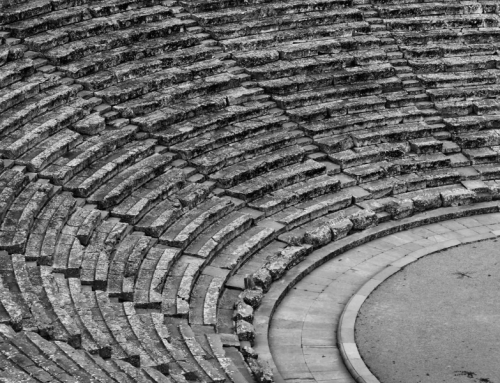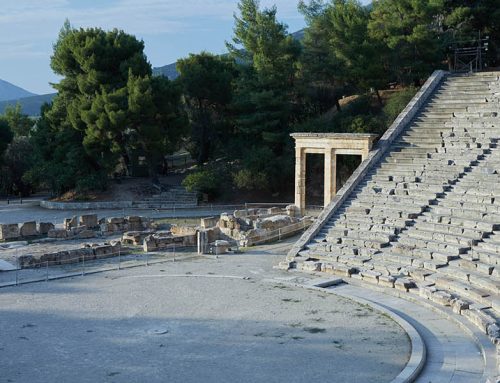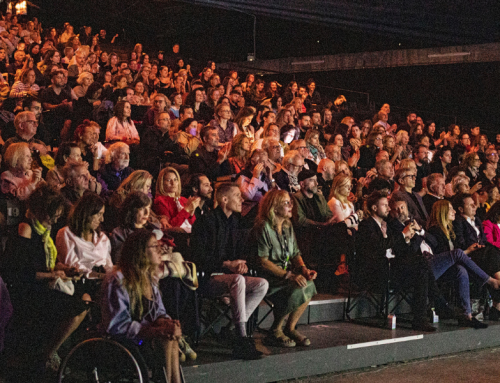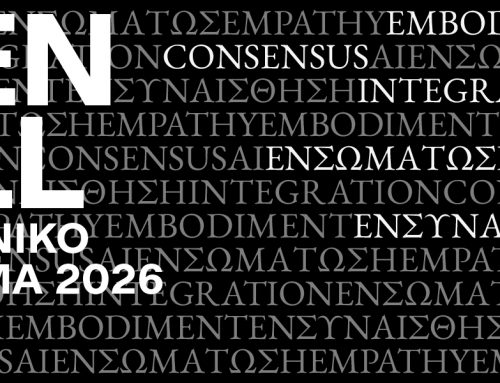The “Act Green” conference, organized by the Athens Epidaurus Festival and held on Tuesday, July 22, 2025, at the Goethe-Institut Athen, concluded successfully. It focused on sustainability in culture and took place within the framework of the Erasmus+ project Sustainable Culture Toolkit (SCT).
Developed through a partnership between the Athens Epidaurus Festival (coordinator), Nowy Teatr (Poland), Théâtre de Liège (Belgium), and Organization Earth (Greece), the Erasmus+ project Sustainable Culture Toolkit aims to support cultural organizations, groups, and professionals active in the fields of culture and performing arts through the development of a comprehensive toolkit for adopting sustainable practices in culture . This toolkit includes practical resources, guidelines, and examples of sustainable practices in the implementation of artistic programs, as well as tools for long-term environmental planning.
The conference opened with a greeting from Katerina Evangelatos, Artistic Director of the Athens Epidaurus Festival, who emphasized the crucial role of art as a response to today’s environmental and social challenges. She welcomed the audience, the representatives of the partner organizations collaborating with the Festival on this project, and the guest speakers.
Through two roundtable discussions featuring figures from various fields of culture, ideas were exchanged about rethinking the relationship between art, environment, and society.
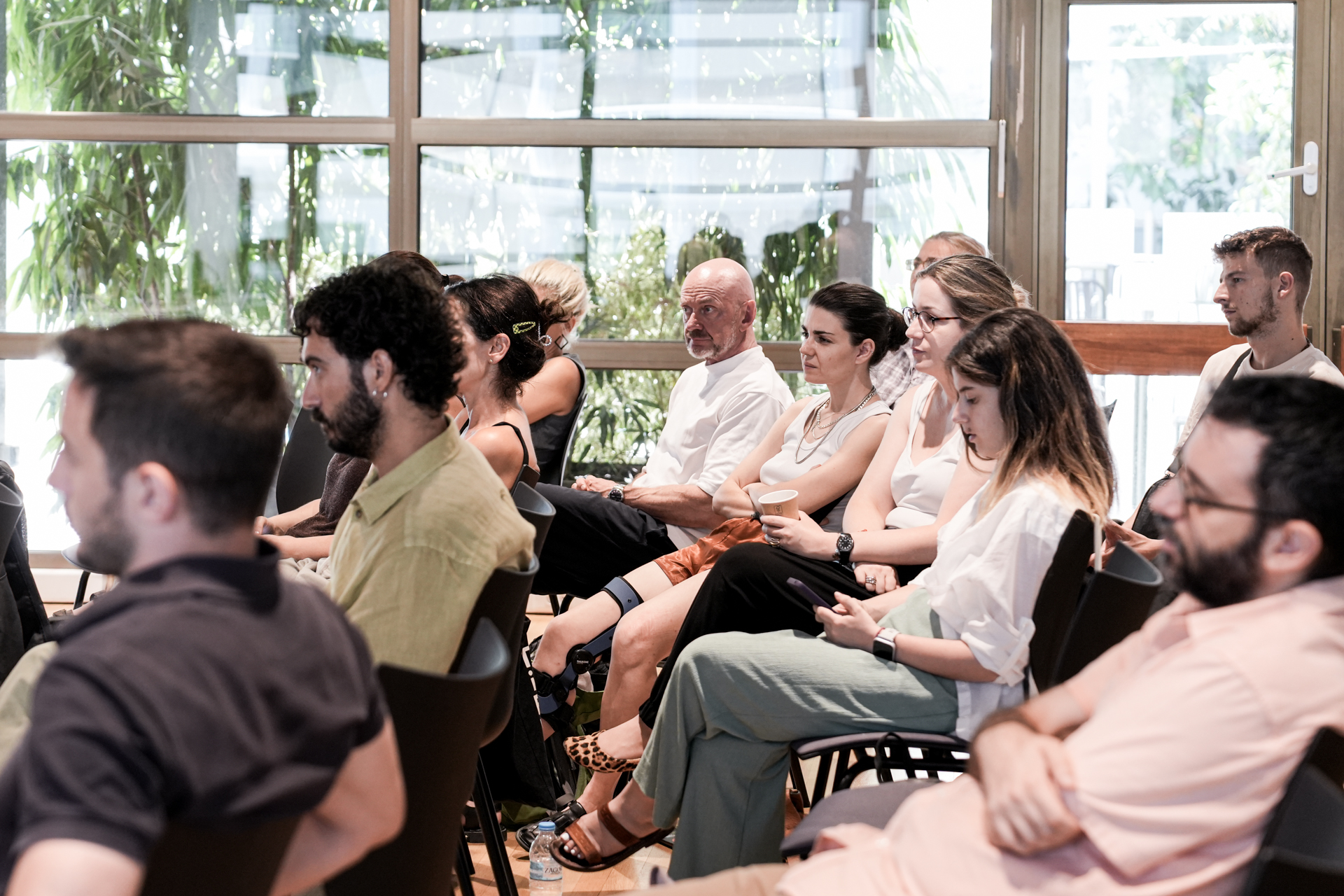
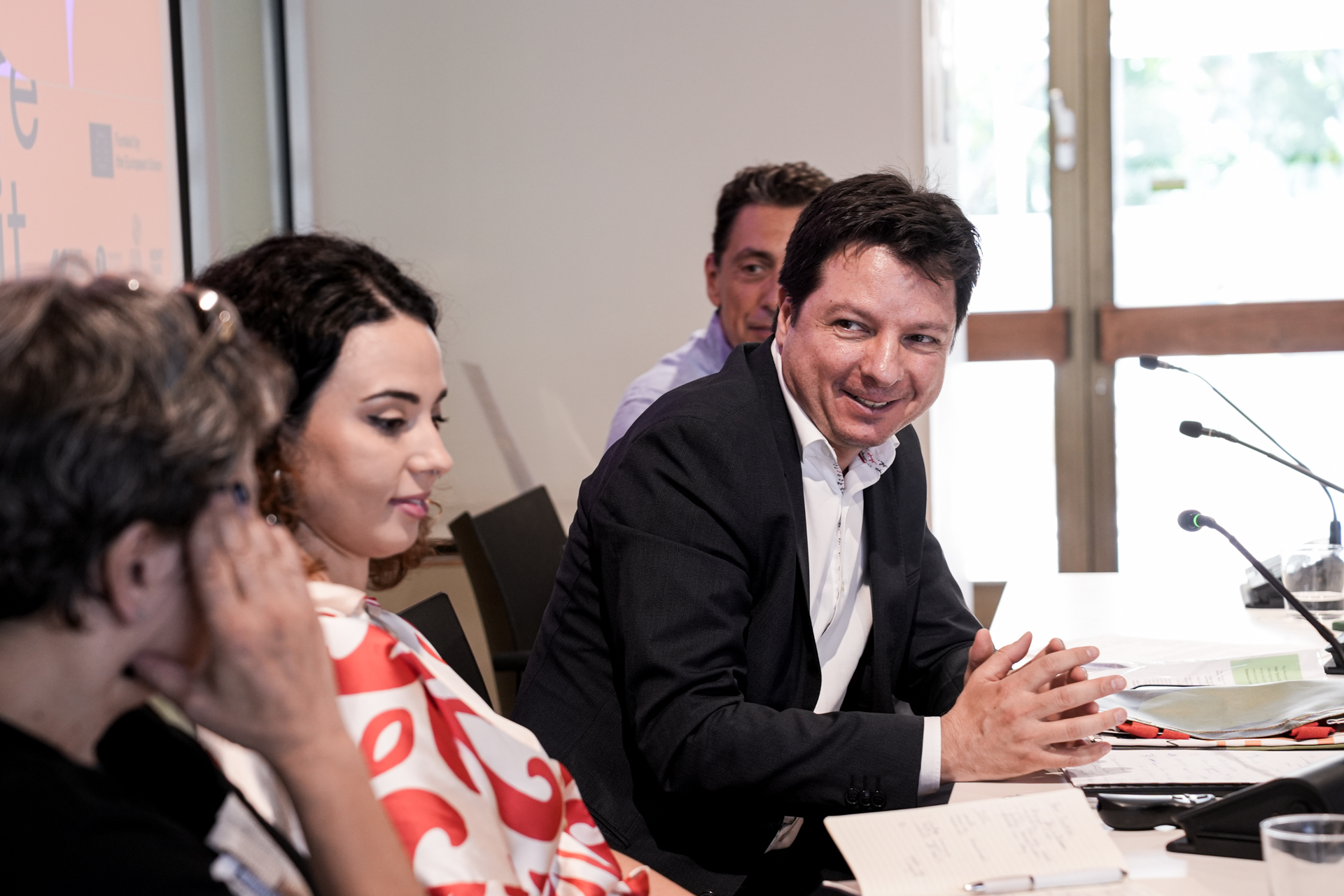
In the first roundtable, participants included Alexis Galinos, Vice President of Development Athens S.A.; Anastasia Mavrogianni, Innovation and Community Coordinator at the Onassis Foundation; Maria Naltsatziadou, Sustainability Coordinator at the Thessaloniki Film Festival; and Ioannis Kaplanis, General Director of the Athens Epidaurus Festival, who also moderated the discussion.
The discussion focused on the role of cultural organizations in transitioning to environmentally sustainable practices as a core component of their mission and operations. Key points highlighted included organizational restructuring, circular use of materials, enhancing education and active engagement with local communities, and fostering collaboration among cultural stakeholders to achieve these goals.
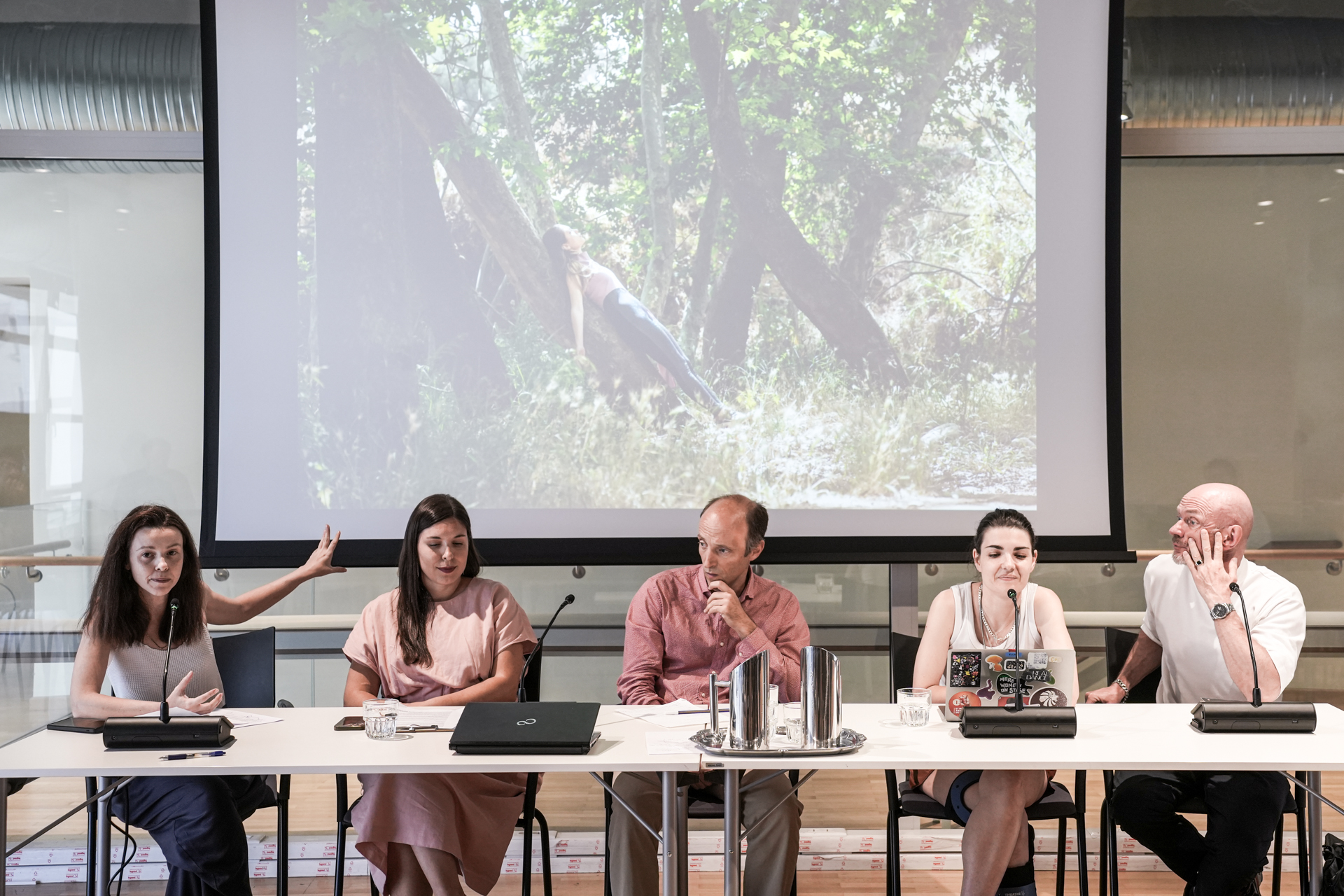
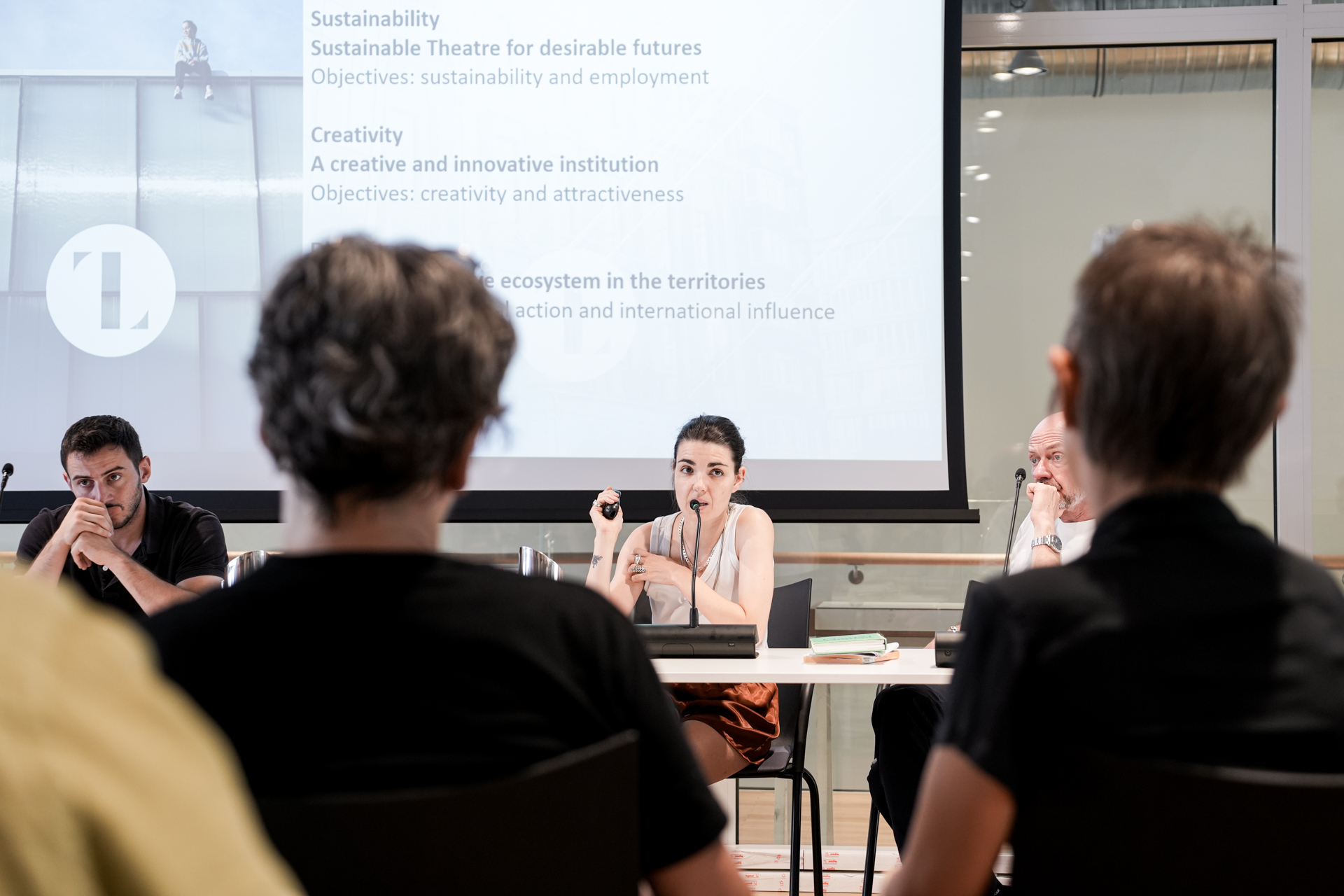
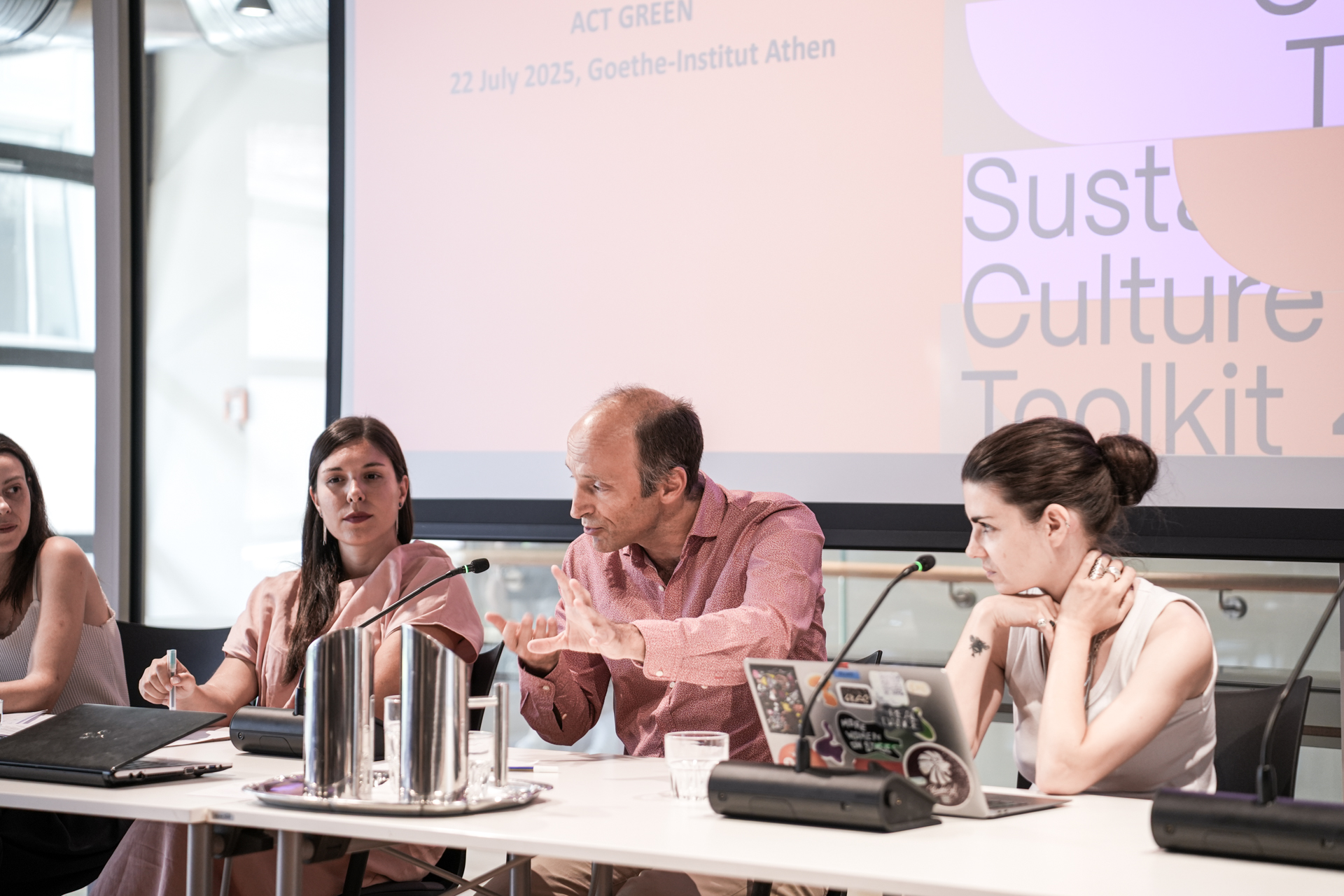
The second roundtable featured Athina Balopoulou, Director of Strategy and Development at the Stavros Niarchos Foundation Cultural Center; Audrey Brooking, Director of Programming & Touring at Théâtre de Liège; Piotr Gruszczyński, Dramaturge and Deputy Artistic Director at Nowy Teatr; and George Sachinis, director of the play “Secret Water”. Moderated by Elena Oikonomou (SCT Project Manager), the discussion emphasized the role of art in shaping new environmental and social awareness. Through different perspectives, the speakers converged on the importance of reconnecting with nature, experiential understanding, personal reflection, and ultimately, collective action.
The conference concluded with a hands-on creative upcycling workshop by Olivia Kotsifa (SYN FAB LAB) that highlighted circular economy practices, such as the reuse of materials from past editions of the Festival—for example, old posters.
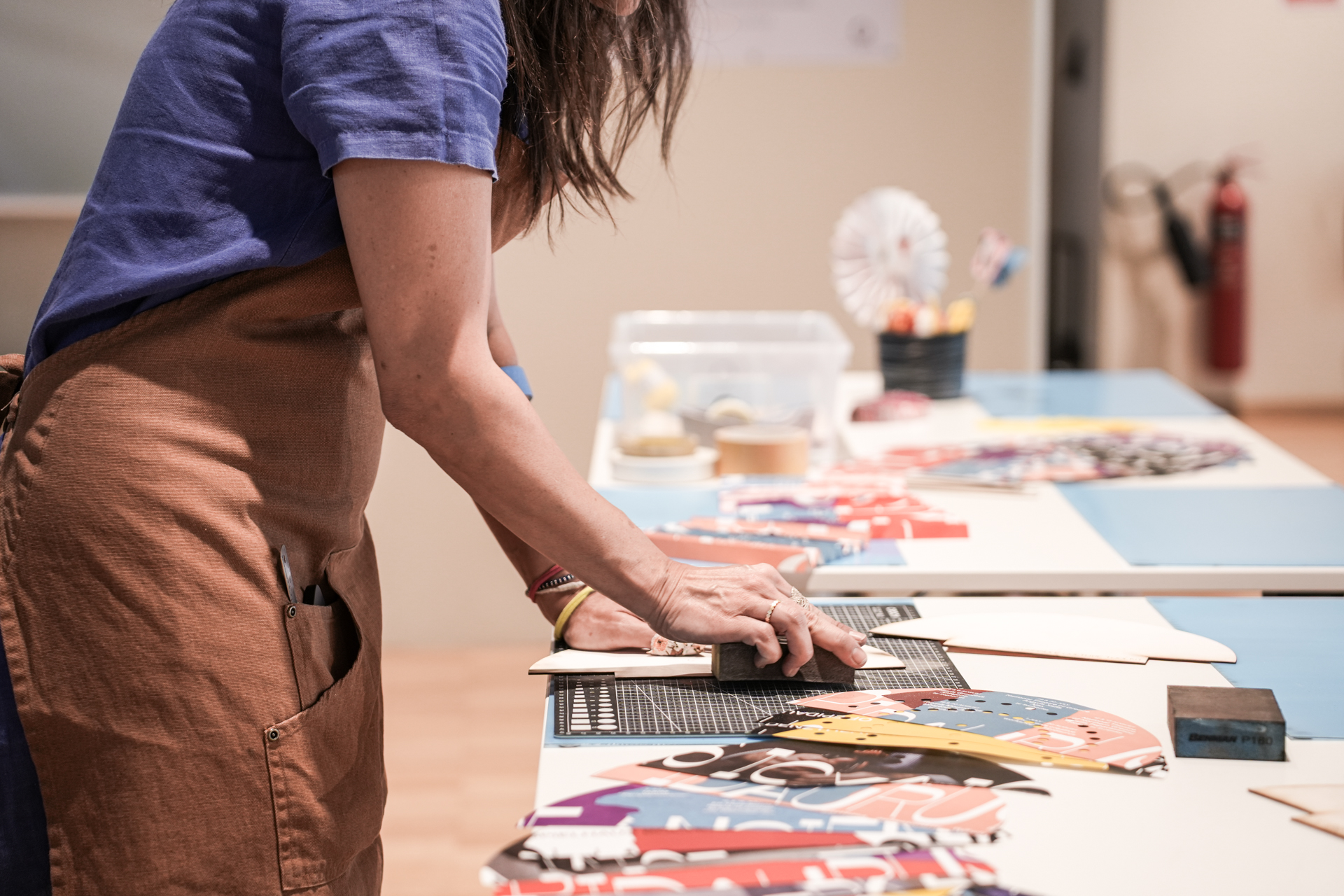
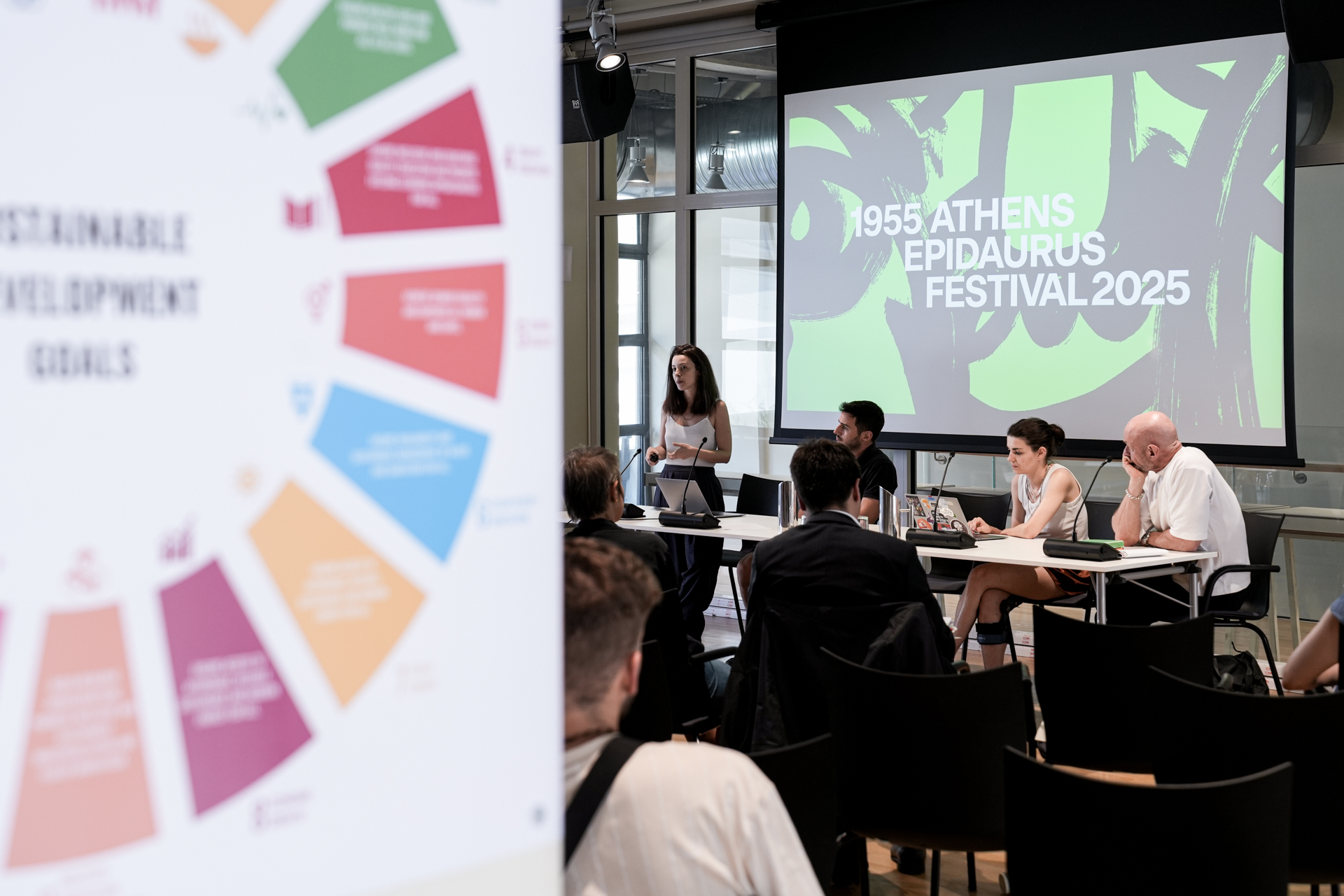
Mr. Kaplanis informed the audience that the tools developed through the Erasmus+ Sustainable Culture Toolkit program will soon be available on the Festival’s website for cultural organizations, groups, professionals, and the general public. He also thanked the Festival’s collaborators and the guest speakers for making the event possible.
You can find the Erasmus+ Sustainable Culture Toolkit handbook here.




